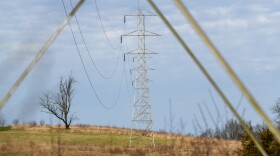
Lester Graham
Lester Graham is with Michigan Watch, the investigative unit of Michigan Radio.
He was formerly the Senior Editor of The Environment Report/Great Lakes Radio Consortium, the environmental news service based at Michigan Radio, starting with the service in 1998.
He has been a journalist since 1985. Graham has served as a board member of Public Radio News Directors Inc., and also served as President of the Illinois News Broadcasters Association. He is a member of the Radio-Television Digital News Association(RTDNA), Society of Professional Journalists and other professional groups.
Graham received more than 100 awards at the state, regional, national and international levels for journalistic excellence, including four RTDNA Edward R. Murrow awards, two of them at the network level.
Twitter: @MichiganWatch
email: llgraham@umich.edu
-
Cigarette butts are one of the most common kind of plastic pollution found on Great Lakes beaches.
-
The massive oil spill in the Kalamazoo River 15 years ago polluted the water and shoreline and left oil-coated wildlife. More than a million gallons of oil was recovered along a more than 35 mile stretch of the river.
-
The National Wildlife Federation says Michigan's environment department should fully review what damage drilling the tunnel for a new pipeline segment might cause.
-
The transition to cleaner energy in Michigan could get an assist through transmission lines to renewable energy from solar and wind in the Great Plains states.
-
Solar and wind energy are sporadic sources of power. Even with enough production to power the entire state of Michigan, storage is needed to keep supply steady with demand. Batteries alone won't suffice.
-
The National Audubon Society's annual Christmas Bird Count is underway until Jan. 5. Coordinated visits to hundreds of sites in the U.S. and Canada to count birds depends on volunteers. There are about 80 sites in Michigan and more than 70 in Ohio.
-
Michigan and Ohio are both struggling to reduce the fertilizer runoff getting into Lake Erie which feeds harmful algal blooms. Those can harm people and animals.
-
Floating solar panels are somewhat new in the U.S. In some places, the competition for land makes putting solar panel on plastic rafts feasible.
-
Citizens for Local Choice wants local governments to decide whether solar or wind farms can be built instead of state government.
-
Only one state, Colorado, has passed legislation that allows farmers to repair farm machinery themselves. Michigan hopes to soon be another in the battle for the right to repair their own equipment.








